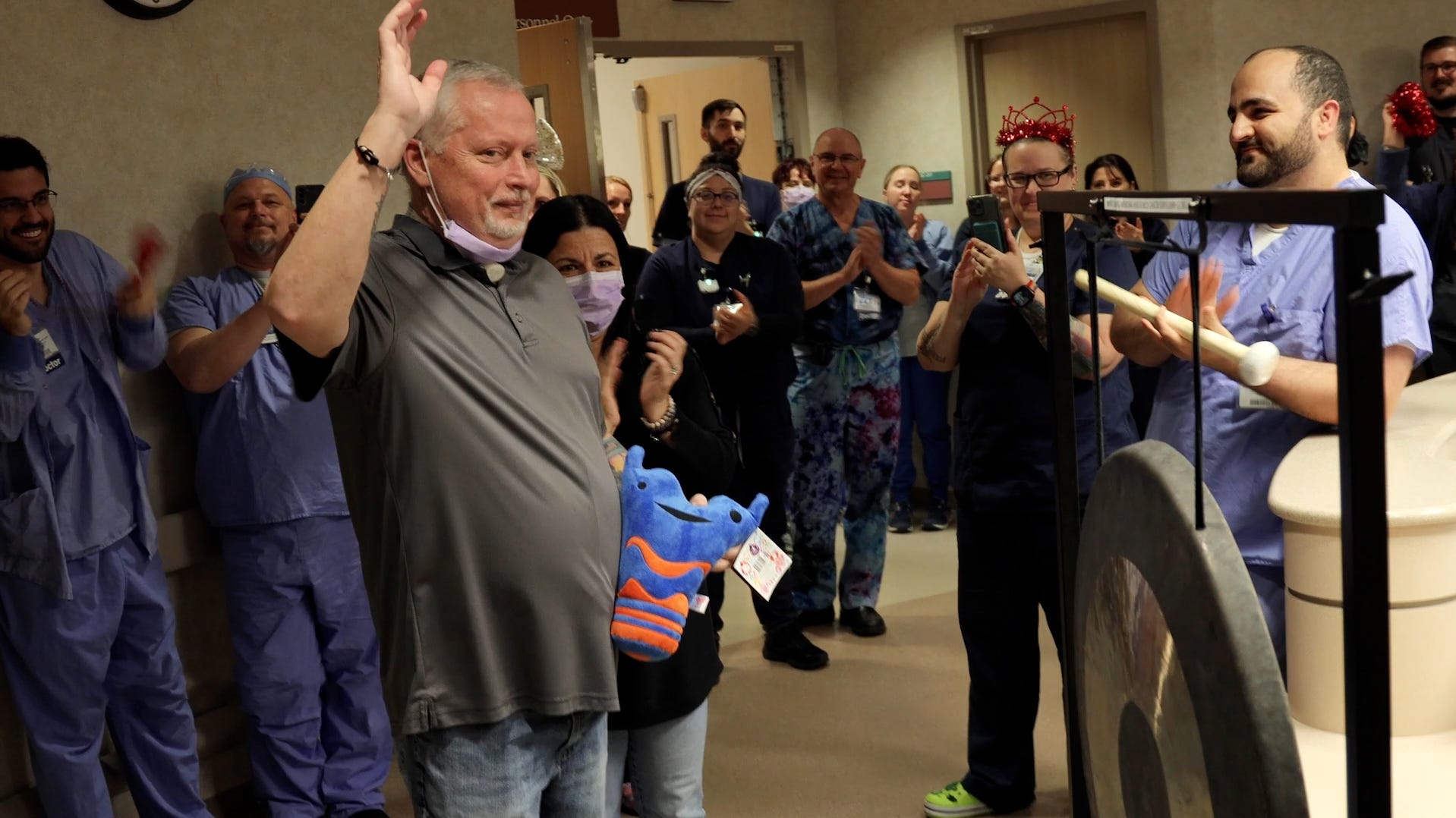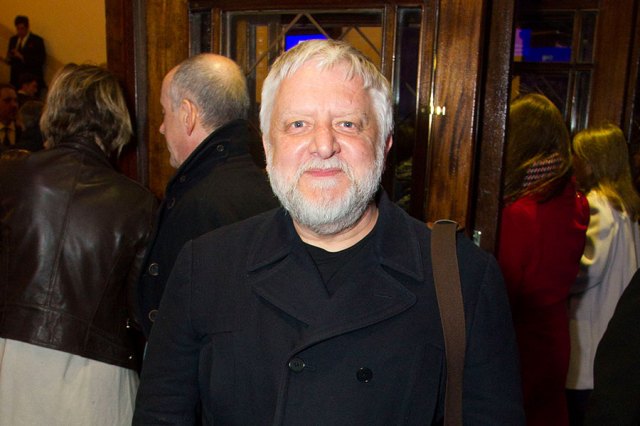Massachusetts man regains his voice after extremely rare larynx transplant

The Mayo Clinic replaced Marty Kedian’s larynx to remove a rare form of throat cancer. Kedian says he feels like he has his life back and can’t wait to read to his granddaughter.

Watch a cancer patient regain his voice after a rare larynx transplant
Marty Kedian underwent a larynx replacement to remove a rare form of laryngeal cancer, making him the first patient with active cancer to receive this transplant.
A Massachusetts man has his voice back after undergoing only the third successful larynx transplant in the United States
Mayo Clinic has replaced Marty Kedian’s larynx to remove a rare form of throat cancer called chondrosarcoma. The procedure marked the first time a larynx transplant has been performed on a patient with active cancer, Mayo Clinic said in a news release announcing the surgery Tuesday.
Six surgeons performed the procedure over 21 hours four months ago on the hospital’s Phoenix campus. Several veins and nerves were damaged during the complicated operation.
“The larynx is really part of a unit, or I like to call it a real biomechanical structure where it’s alive,” Dr. David Lott, chief of the division of otolaryngology at the Mayo Clinic in Arizona, told USA TODAY on Wednesday. “The vast majority of people who have only laryngeal problems also have (other throat) problems, simply because everything is so intricately interwoven to function.”
The results of the operation were published on Tuesday in the journal Mayo Clinic Proceedings.
The procedure was part of the first known clinical trial of laryngeal transplantation in the United States. According to the American Cancer Society, there will be about 12,650 new cases of laryngeal cancer in the United States this year.
“When we see that it’s actually quite safe to do this, and we see that (patients) can regain their normal functioning or even half their functioning, that makes a huge difference to people,” Lott said.
Operation gives cancer fighters their voice back
Kedian, who lives in Haverhill, north of Boston, was diagnosed with cancer 10 years ago and has undergone several surgeries, the last of which left him speechless 10 months ago. He eventually had a tracheotomy so he could breathe through a hole in his throat.
“I was alive, but I wasn’t living,” Kedian said in a statement. “I would love to talk to people everywhere I go, but I just couldn’t. I felt strange and didn’t want to go anywhere.”
Doctors told Kedian that his last option was a laryngectomy, which means his voice box would be completely removed and he would no longer be able to speak.
“The word laryngectomy made me want to have this (transplant) because I didn’t want a laryngectomy,” Kedian told USA TODAY on Wednesday. “I wanted to find a way to get my quality of life back… I didn’t want to live with a laryngectomy.”
Why laryngeal transplants are so rare
According to the clinic, full larynx transplants are not performed in cases of cancer because doctors fear that the immunosuppression required after the procedure could cause the cancer to spread.
Kedian was selected to participate in the clinical trial because he was already taking immunosuppressants due to a previous kidney transplant.
Lott said the ability to operate on a cancer patient is an “important step in advancing laryngeal transplant science because we can observe the procedure in its natural environment without exposing it to additional risk.”
Recovery exceeds doctor’s prognosis
Kedian has regained 60% of his voice – despite his Boston accent – and can eat almost anything, beating Lotts’ recovery timeline.
The first word Kedian said in six months was “Hello” to Lott.
“I was not allowed to speak at all. I said my first word after two weeks, and then they told me to be quiet again,” Kedian said.
Lott said that at a follow-up hearing, where he heard Kedian’s voice gaining strength, he realized the importance of the trial.
“It’s just clear that this is going to work and could have a huge impact on hundreds of thousands of people who are in the same situation,” Lott said.
Kedian returns to Massachusetts next week and is looking forward to reading Winnie the Pooh stories to his granddaughter, Charlotte.
“What they have done for me is incredible,” Kedian said. “Dr. Lott is part of the family now.”



